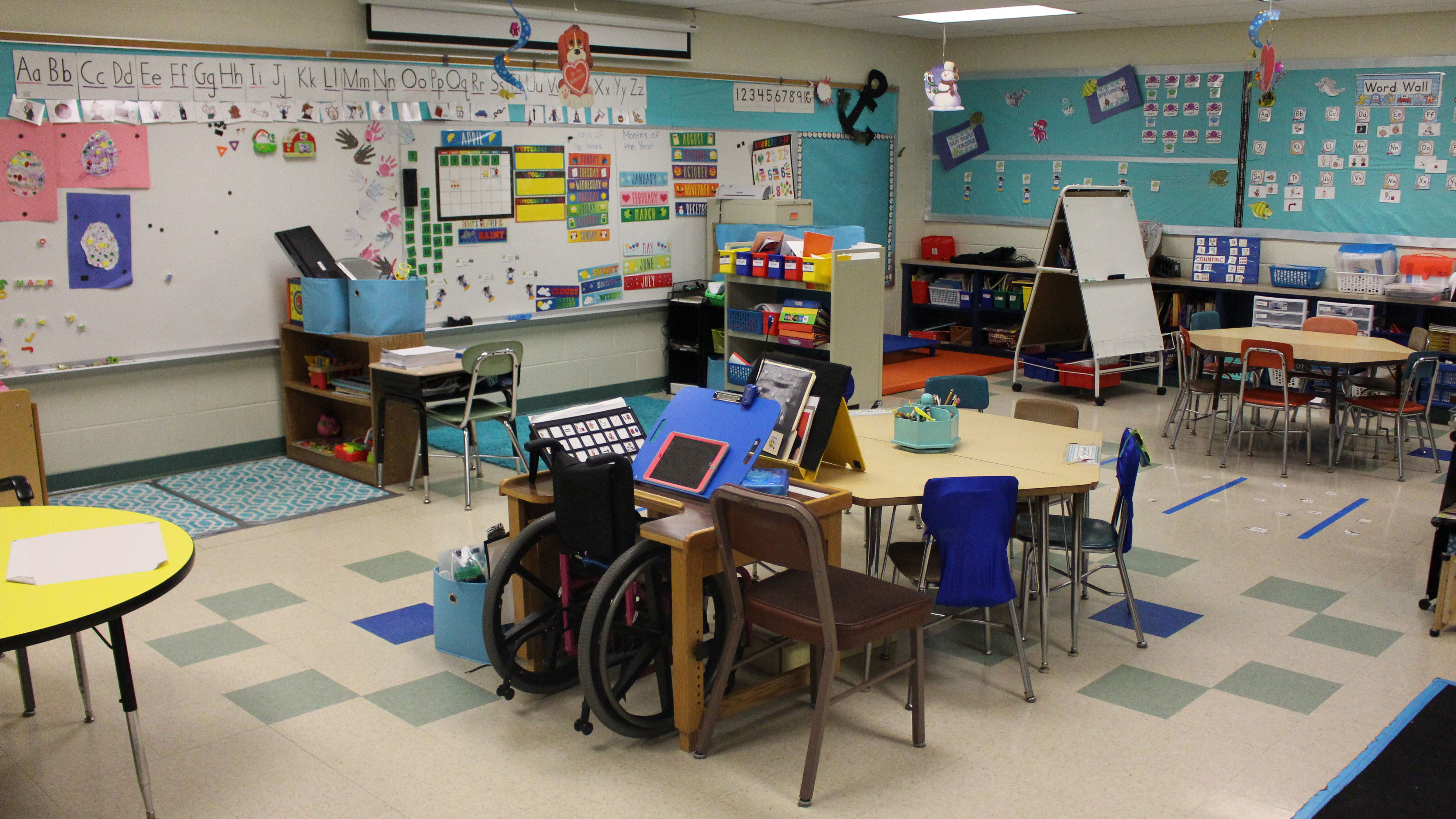ADDITIONAL SERVICES

Section 504
School-aged children who have or are thought to have disabilities as defined in section 504 of the Rehabilitation Act of 1973, 29 U.S.C. § 794, and the Americans with Disabilities Act, 42 U.S.C. § 12102, may receive related aids, services, or accommodations. They are needed to afford the student equal opportunity to participate in and obtain the benefits of the school program without discrimination and to the maximum extent appropriate to the student’s abilities.
For those students who have a disability that require accommodations or services to appropriately access their regular education program, an evaluation for an educational service agreement (504 Plan) can be requested. Students receiving services under this category are typically children who are not eligible for special education services, yet demonstrate a disability that requires special consideration within the educational setting. The disability should not be a temporary, non-chronic impairment of short duration, with little or no permanent long-term impact. In order to request a Section 504 evaluation, the parent should contact their child’s Guidance Counselor.
Education for Homeless Youth
Education for Homeless Youth 42 U.S.C. § 11431 et seq
The McKinney-Vento Act states that it is the policy of Congress that state educational agencies shall ensure that each child of a homeless individual and each homeless youth has equal access to the same free, appropriate public education, including a public preschool education, as provided to other children and youths 42 U.S.C. § 11431. Specifically, 42 U.S.C. § 11432(g) (3) (A) indicates that the local educational agency (LEA) shall, according to the child’s best interest: In accordance with Section 722 (g) (3) (B) (ii), the local educational agency:
(I) Must presume that keeping a homeless child or youth in the school of origin is in the student’s best interest unless doing so is contrary to the request of the student’s parent or guardian, or (in the case of an unaccompanied youth) the student;
(II) Must consider student-centered factors related to a student’s best interest, giving priority to the request of the student’s parent or guardian, or (in the case of an unaccompanied youth) the youth; or
(III) If the LEA determines that it is not in a student’s best interest to attend the school of origin, or the school requested by the parent, guardian, or unaccompanied youth, it must provide a written explanation of the reasons for its determination, in a manner and form that is understandable.
According to the McKinney-Vento Act, the term “school of origin” means the school the child or youth attended when permanently housed, or the school in which the child or youth was last enrolled. 42 U.S.C. § 11432(g) (3) (G).
In determining the best interest of the child or youth under McKinney-Vento Act, the LEA shall:
(I) Continue the student’s education in the school of origin for the duration of homelessness when a family becomes homeless between academic years or during an academic year; and for the remainder of the academic year even if the child or youth becomes permanently housed during an academic year; or
(II) Enroll the student in any public school that non-homeless students who live in the attendance area in which the student is actually living are eligible to attend.
Educational Stability for Children and Youth in Foster Care
UDASD Point of Contact
Heather Haupt, Director of Special Education & Student Services
Email: haupth@udasd.org
Phone: 717-362-6573
UDASD is dedicated to supporting the educational rights and well-being of students in foster care. We recognize the unique challenges faced by students in foster care and are committed to ensuring they have the necessary resources and support to thrive academically and emotionally.
Students in foster care have specific rights under state and federal laws to help protect their educational stability and provide them with equal access to educational opportunities. UDASD is dedicated to upholding these rights and working collaboratively with all stakeholders to coordinate services and supports for students in foster care. UDASD is committed to providing a supportive and inclusive environment for students in foster care.
On this page, you will also find resources and information related to foster care rights and support services.
Resources:
UDASD Board Policy 255 – Educational Stability for Children in Foster Care
Educational Stability for Children and Youth in Foster Care
BECS Enrollment of Students – Foster Students – 24 P.S. §13-1305
Ensuring Educational Stability for Youth in Foster Care – Answers to Frequently Asked Questions
Act 1 of 2022 – Assisting Students Experiencing Education Instability 24 P.S. § 13-1331.1
UDASD Point of Contact
Heather Haupt, Director of Special Education & Student Services
Email: haupth@udasd.org
Phone: 717-362-6573
Act 1 of 2022 (Act 1) promotes timely high school graduation and facilitates equal access to academics and extracurricular activities and the removal of systemic barriers for students who experience education instability as defined by the legislation.
Additionally, Act 1 confers specific duties on all school entities, including school districts, charter schools, regional charter schools, cyber charter schools, intermediate units, and career and technical schools. Act 1 does not in any way alter or undermine the rights of students with disabilities or abridge other state or federal laws that protect eligible students.
Resources:
Act 1 0f 2022: Assisting Students Experiencing Education Instability
